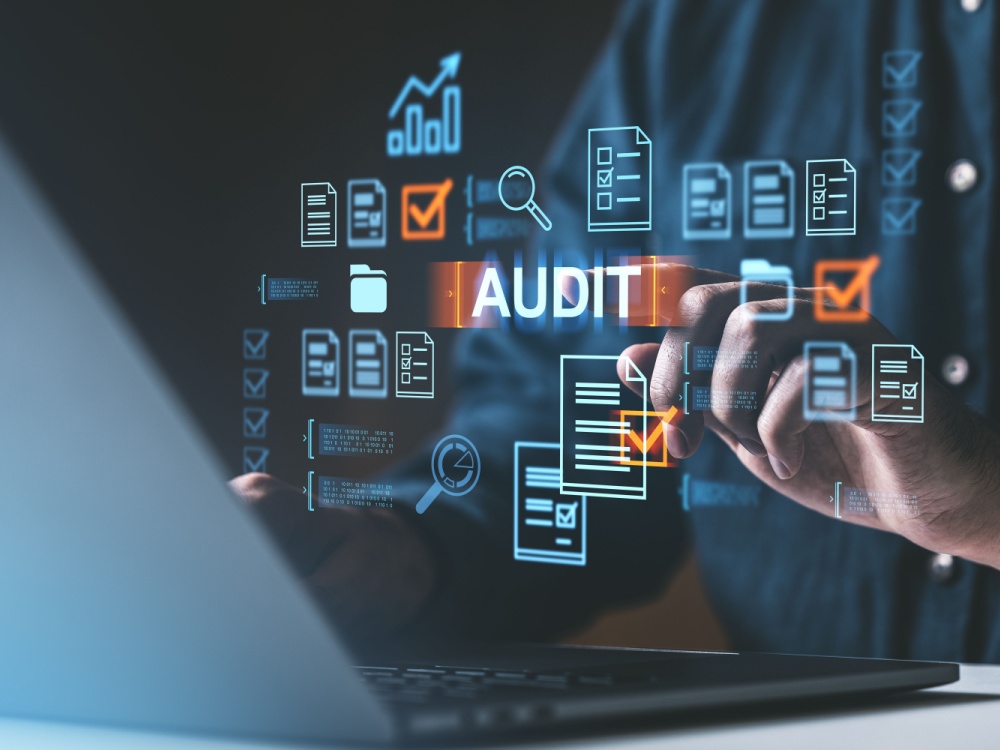August 12, 2025
A NERC audit is more than just paperwork—it's an evaluation of how well you safeguard the bulk power system. In simple terms, auditors review your internal controls, processes, and culture to ensure reliability standards are met. They look at evidence of your day-to-day compliance, not just test your knowledge on the spot. Think of the audit like a health checkup: it's meant to catch issues early, not punish you.
Types of Oversight
NERC and its Regional Entities use multiple compliance tools throughout the year. Aside from the scheduled audit every few years, there are spot checks, self-certifications, thematic audits, and risk-based audits, among others. Internally, you may also do mock NERC audits or hire consultants. Picture it like health monitoring: annual physicals (scheduled audits), surprise clinic visits (spot checks), monthly check-ins (self-reports), and targeted tests (thematic audits). Each has its own flavor, and different regions might focus more on certain types. No matter what comes, the keys are the same: strong controls and a strong culture.
Why Compliance Matters
Failing a NERC audit has serious consequences. It can mean big fines, mandatory mitigation plans (forcing you to fix problems quickly), increased scrutiny in future audits, and damage to your reputation. Non-compliance can even hurt team morale. As one compliance veteran jokingly warns, "Audits go on your permanent record." In other words, skipping compliance today only makes tomorrow harder. It's far better to invest effort now than pay later—and to keep the lights on safely.
Culture and Mindset
Good compliance starts with culture. Remember Peter Drucker's insight: "Culture eats strategy for breakfast." In practice, this means your team's daily habits matter more than any written plan. A culture of continuous compliance means folks aren't just alert during audit season—they live it every day. Embed compliance into your team's values: recognize when someone spots and fixes an issue, and share stories of how controls prevented mistakes. Build your "compliance story" by knowing every risk and control intimately, so during the audit, you can confidently say, "Let me show you how we keep the grid secure," rather than having to scramble for answers.
Common Pitfalls to Avoid
During audit prep, proactively steer clear of these traps:
Procrastination: Don't wait for the Notice. Start reviewing RSAWs and evidence requirements early and often. You should be targeting a constant state of audit readiness.
Evidence Hoarding or Shortage: Avoid either extreme. Don't hoard every file just in case, but also don't run out of proof. Aim for a balanced, up-to-date library of evidence.
Disarray: Messy folders and missing data trip up even seasoned auditors. Organize your evidence logically—by standard or control—and use clear names and a common nomenclature and structure.
Scope Guessing: Never assume what auditors will ask. If possible, confirm the scope with your Regional Entity or review it carefully in the Notice.
Attitude: Keep defensiveness off your team's menu. Auditors aren't adversaries; think of them as constructive reviewers. (One industry expert quips, "Auditors are the restaurant critics of compliance — serve them your best.")
Stay proactive and always frame your audit as a risk-based conversation. Communicate internally about top risks and how your program manages them. Use phrases like "Here's what we've done to manage this risk," rather than pointing fingers. This builds trust in your compliance culture.
Conclusion
Know what an audit is, what it isn't, and treat it as a chance to prove your compliance strength—not just to check a box. When those auditors arrive, you'll be ready to demonstrate how you keep the grid safe every single day.
Download "The NERC Audit Survival Guide" and discover how leading energy providers and utilities are turning audit stress into a consistent, confident, and even empowering routine.
About the Author
Scott Crow is the Senior Business Systems Strategist – Energy & Utilities at AssurX, where he drives strategic innovation and technological transformation across the critical infrastructure landscape. With extensive experience in delivering IT/OT solutions, Scott specializes in tackling the most pressing cybersecurity and compliance challenges for the energy and utilities sector. His expertise lies in aligning technology with business objectives, seamlessly integrating people, process, and technology to develop solutions that optimize operational performance while safeguarding critical systems.


